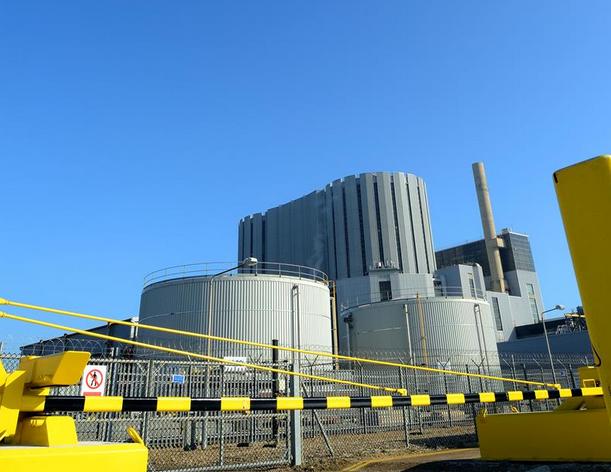A protest group centred on local councils claims to have found a way of meeting at least part of Britain’s multi-billion public bill for consigning its ageing AGR nuclear reactors to the bin.
Nuclear-Free Local Authorities (NFLA) agrees with last week’s report by the Commons’ powerful public accounts committee, which lambasted the government for leaving tax payers deeper on the hook for the rocketing costs of decommissioning Britain’s seven ageing AGR reactors.
More state investment in high-return, low-risk renewables is the remedy, the council-based protestors claim, to filling a hole in the under-performing Nuclear Liabilities Fund.
The fund has needed two bail-outs since since 2019, receiving a total of £10.7 billion in new public cash. The NLF’s surplus now stands at around £15billion.
The public accounts committee last week bemoaned British nuclear’s escalating costs, due in large part to the terms of Labour’s deal in 2009 to sell them to EDF.
Labour’s deal, said the PAC, “placed a disproportionate amount of risk for meeting future decommissioning costs on the taxpayer”.
The MPs noted that DBEIS has recently agreed that, after EDF defuels the seven AGR (advanced gas-cooled) stations, their ownership will pass to the Nuclear Decommissioning Authority (NDA) to strip out their isotopes.
“The pace at which the stations can be defueled could have a big impact on the costs, between £3.1 billion and £8.0 billion depending on the time taken”, the Commons watchdog observed.
MPs believe the handover agreement to the NDA does not sufficiently “incentivise cost efficiency and ensure a smooth transfer of defueled stations”.
A stay of execution on the seven station should now be considered, the committee urges. BEIS and EDF should now “double-check whether it would be technically feasible, safe and cost-effective to extend the lives of any of the remaining operating stations”.
“The decommissioning dates of these power stations were clear decades ago”, Sir Geoffrey Clifton-Brown MP, the Public Accounts Committee’s deputy chair commented.
“The Government should have been commissioning this replacement at that time, so that by now they would be generating base load power into the grid. For these major projects with long lead times, effective forward planning by Government is essential”.
Councils-based anti-nuclear protestors at NFLA say the £11 billion cash injection was made necessary by Treasury rules. These bind the NLF to invest 80% of its reserves in a government fund which also provides low-interest loans to cash-strapped councils.
Underperformance by that National Loans Fund disclosed in its latest accounts, plus early closure required at Dungeness B on safety grounds, have led to less money than planned being available for the nation’s nuclear clean-up.
Investing more of the nuclear clean-up pot in high-return, low-risk renewables could replenish the fund, and put reactor decommissioning back on schedule, according to Nuclear-Free Local Authorities.
“The fund might well become self-supporting if the board could have its way and do a whole lot of good for our planet into the bargain”, said Leeds councillor David Blackburn, chair of the NFLA.
“Renewables are the future and it would be wonderfully ironic if the returns would help pay for the decommissioning of Britain’s toxic nuclear plants.”
Blackburn believes Labour’s deal in 2009 runs counter to ‘the polluter pays’ principle.
“It is outrageous that EDF Energy can walk away, once they have defueled a redundant plant and handed it over to the Nuclear Decommissioning Authority”, he said
“Under present arrangements, they share no burden of the long-term cost of decommissioning and nuclear waste management, despite reaping the profits during its time in operation and being responsible for the pollution in the first place.
“If this Government is intent on pursuing new nuclear, it needs to seriously pin down the new operators”, he went on.
“It is grossly unjust that British taxpayers will not only front the cost of new reactors through a tax on their electricity bills, but that they will also face the whole liability for decommissioning.”
The public accounts committee’s report on cost overruns in decommissioning the seven AGRs is here.




